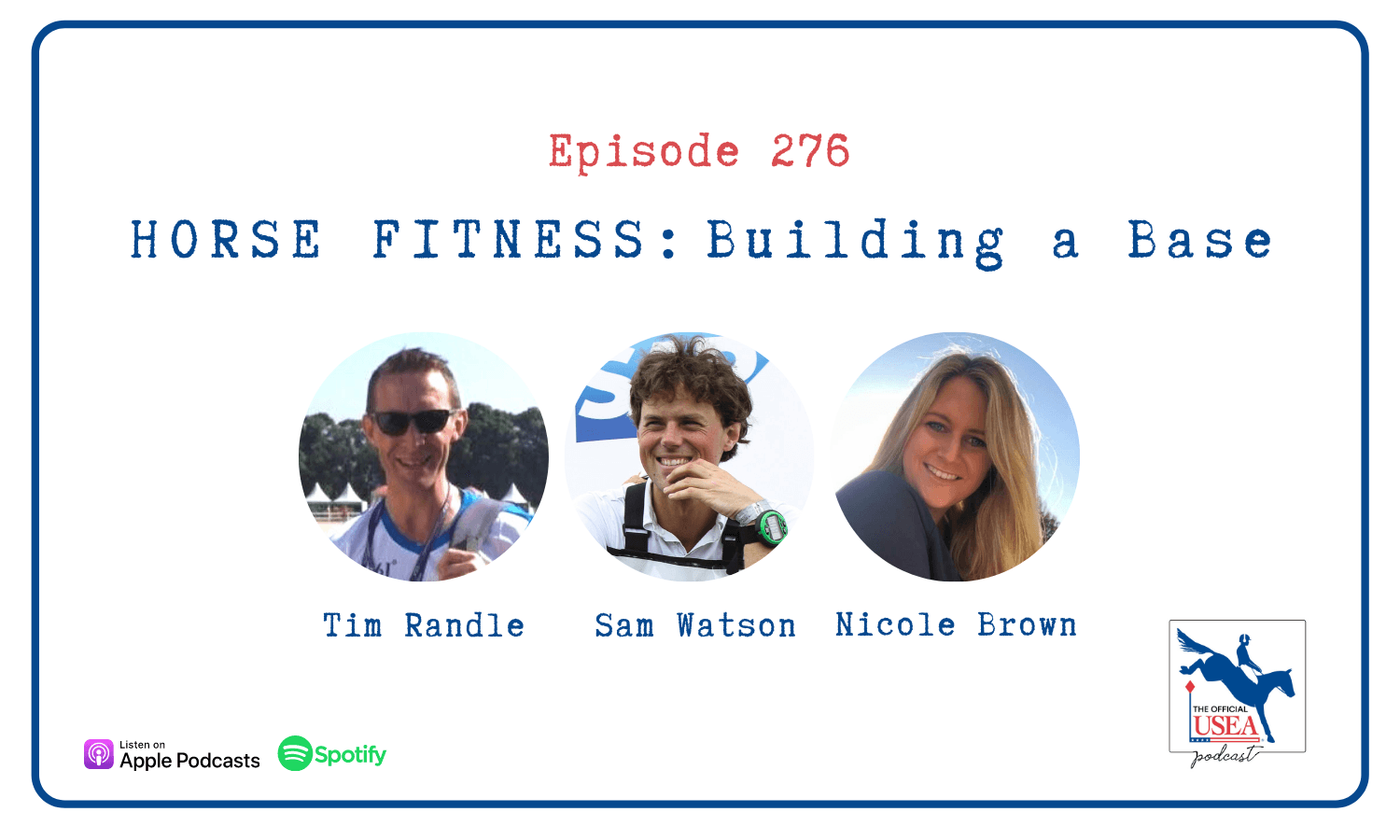Association News
USEA Podcast #276: Horse Fitness: Building a Base

With the season getting underway, we've got a special episode of the USEA Podcast all about fitness for your horse! We have two of the best in the business on the show for you this week - Irish five-star eventer Sam Watson and FEI veterinarian Tim Randle - to talk about how best to build your horse's base of fitness and how to ramp up to hit peak fitness in time for your season's competition goals.
- Watson says that, for him, fitness is about more than just how his horses will perform at the end of a cross-country course. Injury prevention and conditioning are key parts of the fitness equation as well. Watson likes to begin with an aerobic base of fitness and operates on a schedule of "every third day" for fitness days for his horses, with active recovery of flatwork or jumping on days in between.
- Randle points out that, when planning out a fitness schedule for your horse, working backward from the date of the competition you're aiming for is a tried-and-true method for helping your horse "peak" at the right time. Again, he stresses that balancing fitness work with recovery time is key to making sure your horse is building fitness and not being set up to break down somewhere along the line.
- Not all horses are created equal, Watson says. Some horses have more natural athletic ability than others, and it's important to create a fitness plan appropriate for your horse's capabilities.
- Watson cautions against "surprising the body" - all work should be added incrementally and gradually so as not to put undue strain on the horse. Being patient and having a set routine is very important when it comes to fitness work.
- For Watson, using a heart rate monitor to record his horse during fitness work is a powerful tool for making sure that he is increasing his horse's fitness incrementally. Randle says that, while technology has been great for fine-tuning a horse's fitness, it's important not to lose sight of "the art" of horse training - being able to listen to your horse and know how he is handling the work he's being asked to do.
- The eventing season in the United States tends to be elongated due to the fair climate in the south, which means the horse's body has to stay fitter for longer. Watson shared that, especially with young horses, it's very important for them to be "let down" for a period of time to allow their bodies to adjust to all the changes it goes through over the course of a season. For older horses, they don't need the same kind of break because of their development, but a mental break is still just as important.
- Randle observed that, when it comes to injuries, he sees fewer one-off, "explosive" injuries than he does injuries that evolve from repetitive strain. Cross-training options can be very useful for avoiding those types of injuries.
- Brown poses a question about the use of things like treadmills and swimming as cross-training options for horses. Watson said he likes to stick to cross-training exercises that will most closely mimick what a horse will encounter in competition, but alternatives like swimming or the treadmill can be great options if, for example, your horse pulls a shoe or has an abscess, or for your horse's lower intensity recovery work.
- Randle provides some tips for other things to keep in mind as part of your horse's fitness program - things like maintaining good respiratory health for your horse and maintaining your own fitness as a rider.
- Brown asks Randle to touch on the best methods for recovery. Randle points to active cooling immediately after a workout and then getting your horse rehydrated.
- Watson closes with his number one tip for fitness for any horse and rider at any level - progressive loading. Incremental increases from week to week in the intensity of your fitness work so that your horse becomes fitter gradually and his body never feels "surprised" by the work he is being asked to do.
- Randle's key takeaway when it comes to a horse's fitness, from a veterinary perspective, is that you are far more likely to be injured going too fast on ground that's too hard, both literally and figuratively. "Slow and steady wins the race" when it comes to setting up a fitness routine for your horse.
Subscribe to the USEA Official Podcast on Apple Podcasts, Spotify, PodBean, or Stitcher, or click below to listen in!















